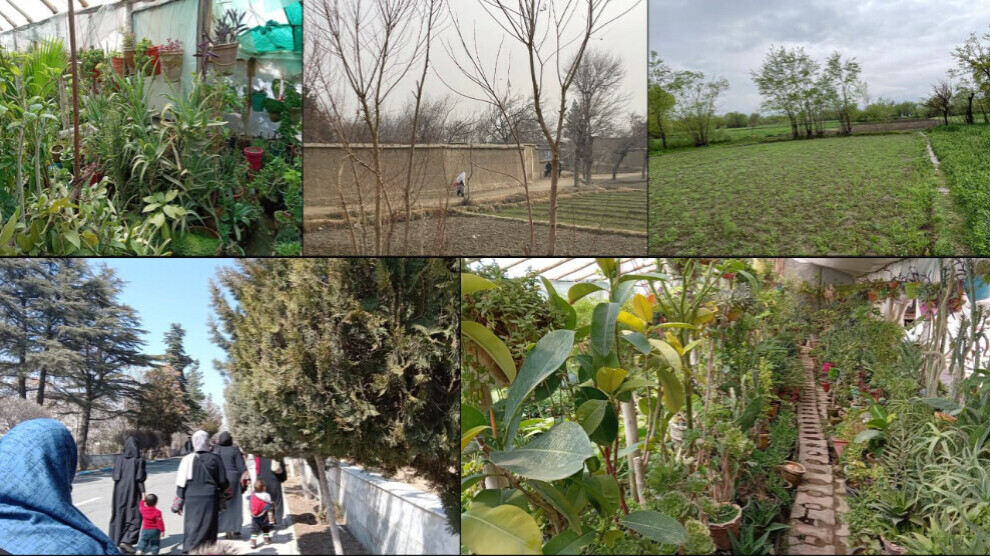Afghan women play important roles in rural economy despite restrictions
Women living in the rural areas of Afghanistan play important roles in the rural economy despite poverty, conflict and restrictions imposed on them. They work for a brighter future.

BAHARIN LEHIB
Afghanistan- Since the Taliban’s takeover of Afghanistan on August 15, 2021, women have been banned from schools, workplaces, salons, gyms and national parks.
Although the country is rich in natural resources, Afghan people suffer from poverty due to the policies of the Taliban.
Afghanistan's economy has been mainly based on agriculture and animal husbandry for years. There are fertile lands in different parts of the country and the people struggle to survive by growing fruits, grains and vegetables. Women farmers living in the rural areas of Afghanistan play important roles in the rural economy although most of the income goes into the pockets of men.
A NuJINHA team visited different parts of Afghanistan and interviewed women farmers resisting despite the restrictions imposed on them by the Taliban.
Nuristan, one of the eastern provinces of Afghanistan, is a mountain region. The people of this province were not Muslims before their region was occupied by Amir Abdur Rahman Khan in 1895-1896. The people of the region were forcibly converted into Islam. The women of this province were among the freest in Afghanistan. Since they were engaged in agriculture and animal husbandry, they played important roles in economy and tribal decision-making.
Since the spread of Wahhabism, women in the province have faced more restrictions. Although they still play important roles in agriculture and animal husbandry in the province, they are excluded from decision-making mechanisms on social issues. In the province, like many other provinces, there are no basic facilities such as paved roads, health centers, schools or markets, and people have to walk for hours to reach these services. Despite everything, these women do not allow their freedoms to be taken away from them easily.
Bamyan province
Bamyan province is the largest province in the central region of Afghanistan. It is one of the provinces with the highest women literacy rate. About 350 people were killed by a firing squad in the province in one day alone during the Taliban's first regime (1996–2001). After that tragedy, the women of the province decided to work to support their families. Following the Taliban’s takeover of the country in 2021, they were confined to their homes but then they started to be engaged in agriculture and animal husbandry again. Due to the cold climate of the region, the harvesting seasons are difficult in the province. Despite everything, the province is the center of apple and potato production in the country. In the province, women also play an important role in animal husbandry and making dairy products for winter.
In Parwan, Kapisa, Panjshir and Baghlan, four provinces located in northern Afghanistan, women also play important roles in agriculture and animal husbandry while doing the housework to have a brighter future.
Women in Logar, Paktia, and Paktika provinces located in southeastern Afghanistan, shoulder the burden of agricultural production, even work more than men.
In Herat province, located in the western part of Afghanistan, women have small gardens and grow fruits, grains and vegetables.
In Kabul, the capital of Afghanistan, women work in greenhouses, growing fruits and vegetables, working for low wages to support their families.
Despite four decades of war, the patriarchal and fundamentalist governments, Afghan women remain silent but stand firm to support their society. Although they are oppressed and face restrictions, they keep working patiently and play important roles in the rural economy. They deserve a brighter and more just future.
